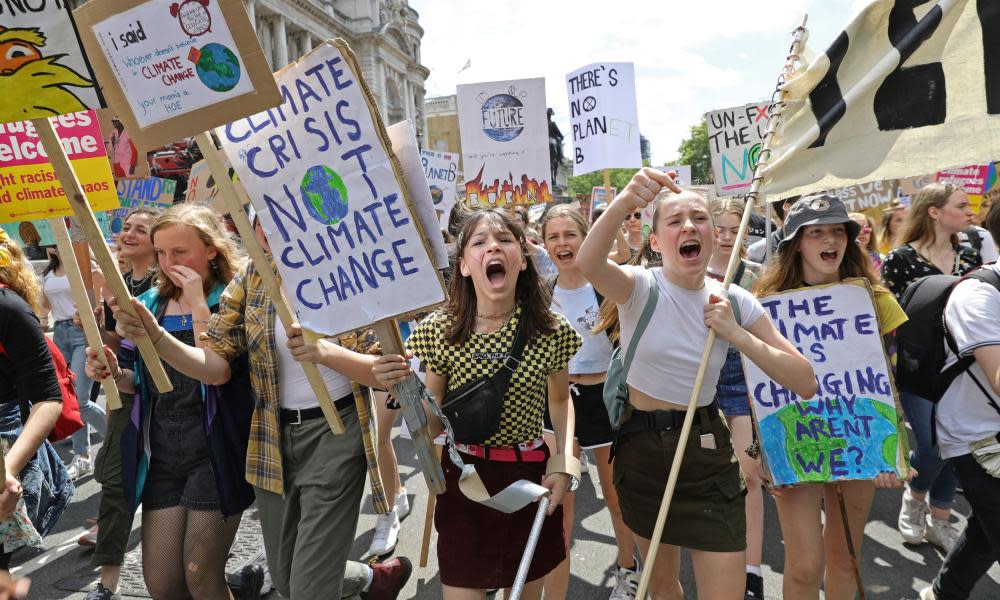Two-thirds of Britons want faster action on climate, poll finds

Nearly 70% of British people want urgent political action to tackle climate change and protect the natural environment, according to research by a coalition of green charities.
Theresa May, in one of her last acts as prime minister, has enshrined in law a commitment to reach net zero carbon emissions by 2050, making Britain the first large economy to do so.
But two-thirds of people who were questioned by researchers for Greener UK and the Climate Coalition believe Britain needs to cut its carbon emissions to zero far faster.
The survey suggests demand for action to tackle the climate crisis is becoming part of a mainstream view. Of the 2,000 people surveyed, 71% said they wanted their MP to support ambitious plans to protect the natural environment and tackle climate change, and a majority wanted to see strong new environmental laws.
The Climate Coalition and Greener UK consists of more than 130 organisations including the Women’s Institute (WI), NGOs such as Cafod, Oxfam, WWF and Tearfund, as well as the National Trust, Mumsnet and the National Union of Students. They are lobbying parliament next week to say “The time is now” for action.
Organisers say more than 14,000 people from all over the country intend to come to Westminster to demand urgent action.
The Guardian has updated its style guide to introduce terms that more accurately describe the environmental crises facing the world. Instead of 'climate change', the preferred terms are 'climate emergency, crisis or breakdown' and 'global heating' is favoured over 'global warming'.
The scale of the climate and wildlife crises has been laid bare by two landmark reports from the world’s scientists. In October 2018, they said carbon emissions must halve by 2030 to avoid even greater risks of drought, floods, extreme heat and poverty for hundreds of millions of people. In May 2019, global scientists said human society was in jeopardy from the accelerating annihilation of wildlife and destruction of the ecosystems that support all life on Earth.
Editor-in-chief, Katharine Viner says 'We want to ensure that we are being scientifically precise, while also communicating clearly with readers on this very important issue. The phrase ‘climate change’, for example, sounds rather passive and gentle when what scientists are talking about is a catastrophe for humanity.'
Other terms that have been updated, including the use of 'wildlife' rather than 'biodiversity', 'fish populations' instead of 'fish stocks' and 'climate science denier' rather than 'climate sceptic'.
Damian Carrington, Environment editor
Rosie Harden-Vane, 66, a member of Seaton Valley WI, said: “I have never done anything like this before and feel quite nervous. However, if I can’t make my voice heard, I would be turning my back on the most important issue of our time. If we don’t change the way we are treating the planet with immediate effect, in my lifetime the decline will be irreversible.”
The prime minister’s intervention to sign the 2050 net zero target into UK law in an amendment to the Climate Change Act 2008 makes the UK the first member of the G7 group of industrialised nations to legislate for that target.
Clara Goldsmith, campaigns director at the Climate Coalition, said the decision was clearly a response to calls for action from voters, which have grown louder and louder in recent months.
“Now we need our politicians to put policies in place to deliver on that target, as well as measures to clean up the air we breathe and the plastic in our seas. The findings in this poll make clear the scale of support for action.”

 Yahoo News
Yahoo News 
